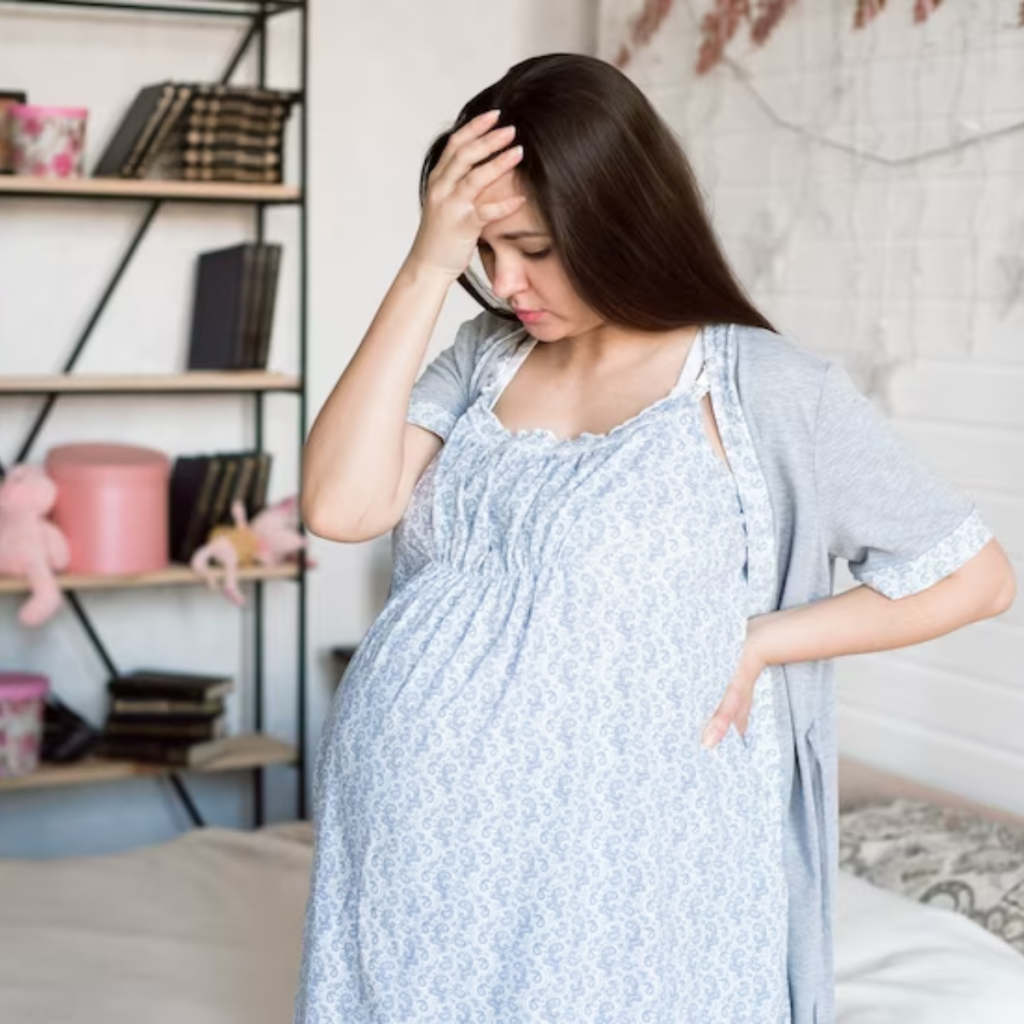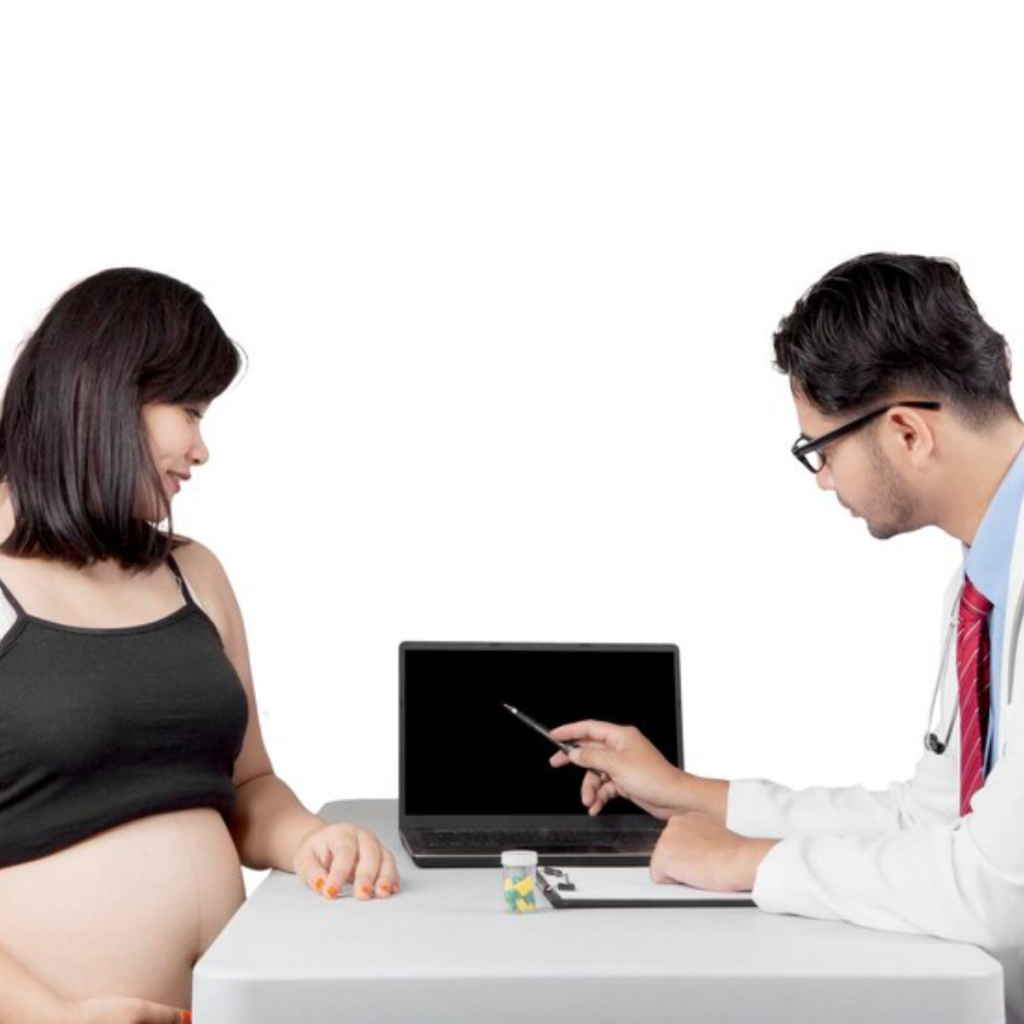Discover the potential link between excessive weight gain during pregnancy and postpartum back pain.
Does Excessive Weight Gain During Pregnancy Increase Risk of Postpartum Back Pain?
Introduction
Welcome to the wonderful journey of pregnancy! As your body undergoes incredible changes to bring forth new life, it’s important to stay informed about the potential challenges that may arise along the way. One such concern is postpartum back pain, which can really put a damper on the joy of motherhood. In this article, we’ll explore the connection between excessive weight gain during pregnancy and the risk of experiencing postpartum back pain. So, grab a cozy pillow and let’s dive in!

Understanding Postpartum Back Pain
Before we delve into the weighty matter (pun intended) of excessive pregnancy weight gain, let’s first familiarize ourselves with what postpartum back pain entails.
Postpartum back pain refers to the discomfort and achiness experienced in the lower back after giving birth. It can range from mild annoyance to serious pain that hinders your daily activities, like chasing after your little one or doing the macarena (if that’s your thing).
But what exactly causes this postpartum back pain? Let’s explore some common causes:
Defining Postpartum Back Pain
Postpartum back pain is not an uncommon phenomenon. In fact, studies have shown that up to 90% of women experience some form of back pain after giving birth. It’s important to understand the factors that contribute to this discomfort so that we can better manage and alleviate it.
One of the main causes of postpartum back pain is the weakening of abdominal muscles during pregnancy. As your baby grows, your abdominal muscles stretch to accommodate the growing fetus. This stretching can lead to a weakened core, which in turn puts more strain on your back muscles.
Hormonal changes also play a role in postpartum back pain. During pregnancy, your body produces a hormone called relaxin, which helps to loosen the ligaments in your pelvis to prepare for childbirth. However, this hormone can also affect the stability of your spine, leading to increased back pain.
Additionally, the strains put on the back during labor and delivery can contribute to postpartum back pain. The pushing and exertion involved in giving birth can cause muscle strain and even minor injuries to the back, leading to discomfort and pain in the postpartum period.
So, ladies, let’s give ourselves credit for the superhero-like struggles our bodies endure! The journey of pregnancy and childbirth is no easy feat, and it’s no wonder that our backs may feel the effects.
The Link Between Pregnancy Weight Gain and Back Pain
Now, let’s talk about the relationship between that baby bump and the risk of developing postpartum back pain.
During pregnancy, weight gain is a natural and necessary part of the process. However, it’s important to understand the impact that weight gain can have on your spine and overall comfort.
The Impact of Weight Gain on the Spine
Your spine, like a trapeze artist, bears the weight of your growing belly as you waltz through pregnancy. It is an incredible feat that your body can adapt to the changes and support the life growing within you. However, excessive weight gain can overburden your spine, leading to additional stress and strain.
Imagine your spine as a strong pillar, supporting the structure of your body. As you gain weight during pregnancy, this pillar must bear an increasing load. While a few extra ice cream scoops may seem tempting, it’s crucial to maintain a healthy weight for your own comfort and to prevent unnecessary strain on your spine.
How Pregnancy Changes Your Body
Pregnancy has a knack for stirring things up within the body. Beyond the beauty of growing life, weight gain during pregnancy can alter your center of gravity, placing greater pressure on your back. It’s like carrying around a backpack filled with unicorns – cute but heavy!
As your baby bump grows, your body naturally adjusts to accommodate the changes. Your center of gravity shifts forward, putting more strain on your lower back. This change in posture can lead to discomfort and even pain.
Additionally, hormonal changes during pregnancy can affect the strength and flexibility of your ligaments and joints. This can further contribute to back pain, as the supporting structures of your spine may be more prone to strain and injury.
It’s important to note that every woman’s experience with pregnancy weight gain and back pain is unique. Some may experience minimal discomfort, while others may face more significant challenges. However, by maintaining a healthy weight, practicing good posture, and engaging in gentle exercises recommended by your healthcare provider, you can reduce the risk of developing postpartum back pain.
Analyzing the Risk of Excessive Weight Gain During Pregnancy
Now that we’ve seen how pregnancy weight gain and back pain are bosom buddies, let’s assess the risks associated with packing on more pounds than necessary.
During pregnancy, it’s natural to experience cravings that may tempt you to consume a year’s supply of pickles and ice cream. However, it’s important to strike a balance and be mindful of the potential risks. According to experts, a healthy weight gain during pregnancy ranges from 25 to 35 pounds, depending on your pre-pregnancy weight. So, ladies, remember, it’s all about quality over quantity when it comes to both your baby and your ice cream bump sizes!

What Constitutes Excessive Weight Gain?
While it may be tempting to indulge in all your favorite treats during pregnancy, it’s crucial to understand what constitutes excessive weight gain. Gaining too much weight can have negative effects on both you and your baby’s health. It’s important to maintain a balanced diet and engage in regular physical activity to ensure a healthy pregnancy.
Excessive weight gain during pregnancy can lead to complications such as gestational diabetes, high blood pressure, and an increased risk of postpartum back pain. By monitoring your weight gain and making healthy choices, you can reduce the likelihood of experiencing these potential health issues.
Potential Health Risks Associated with Excessive Weight Gain
Excessive weight gain during pregnancy isn’t just about squeezing into those cute maternity jeans; there are possible health implications too. It increases the risk of gestational diabetes, a condition that affects blood sugar levels during pregnancy. Gestational diabetes can have long-term effects on both the mother and the baby, including an increased risk of developing type 2 diabetes later in life.
In addition to gestational diabetes, excessive weight gain can also lead to high blood pressure, a condition known as gestational hypertension. This condition can increase the risk of preeclampsia, a serious pregnancy complication that can affect both the mother and the baby.
Furthermore, excessive weight gain during pregnancy can contribute to postpartum back pain. The additional weight puts strain on the spine and can lead to discomfort and pain after giving birth. By maintaining a healthy weight during pregnancy, you can reduce the risk of experiencing this common postpartum issue.
It’s important for expectant mothers to be mindful of their weight gain and make informed choices to ensure a healthy pregnancy. By following a balanced diet, engaging in regular exercise, and consulting with healthcare professionals, you can minimize the potential health risks associated with excessive weight gain during pregnancy.
Correlation Between Excessive Pregnancy Weight Gain and Postpartum Back Pain
Curiosity, like a fever, runs rampant as we delve into the relationship between excessive pregnancy weight gain and postpartum back pain. Let’s explore recent research findings that shed light on this correlation.
Recent Research Findings
A recent study conducted with mouse moms (yes, really!) suggests that obesity during pregnancy increases the risk of postpartum back pain. Though the squeaky mice can’t talk, the results point towards a possible connection between excessive weight gain and postpartum back pain in humans too. Fascinating, isn’t it?
But what exactly did this study entail? Well, a group of dedicated researchers carefully monitored a colony of pregnant mice, ensuring they were well-fed and had access to all the cheese they desired. As the mice progressed through their pregnancies, their weight gain was meticulously recorded. After giving birth, the mice were observed for any signs of back pain, such as altered movement or discomfort. The results were astonishing!
It was discovered that the mice who gained excessive weight during pregnancy experienced a higher incidence of postpartum back pain compared to their counterparts who maintained a healthy weight. This finding suggests that there may indeed be a correlation between excessive pregnancy weight gain and postpartum back pain in humans as well.
Understanding the Correlation
While the exact mechanisms behind the link between excessive weight gain during pregnancy and postpartum back pain are still being unraveled, it’s likely that the added strain on the spine and the changes in posture play a significant role. As the baby grows, the mother’s body naturally adapts to accommodate the extra weight. This adjustment can lead to changes in posture and an increased load on the spine, potentially causing discomfort and pain.
Furthermore, hormonal changes during pregnancy can also contribute to the development of back pain. The hormone relaxin, which helps relax the ligaments in preparation for childbirth, can also affect the stability of the joints in the spine. This increased laxity may contribute to the development of back pain, especially when combined with the additional strain caused by excessive weight gain.
It’s important to note that while excessive pregnancy weight gain may increase the risk of postpartum back pain, it is not the sole factor. Other variables, such as pre-existing back conditions, overall fitness levels, and genetic predisposition, can also influence the likelihood of experiencing back pain after giving birth.
So, let’s strive for a balanced approach and keep those scales from tipping too far! Maintaining a healthy weight during pregnancy, engaging in regular exercise, and practicing good posture can all contribute to reducing the risk of postpartum back pain. Remember, a healthy and pain-free postpartum experience is within reach!
Preventing and Managing Postpartum Back Pain
Now that we’ve explored the correlation, it’s time to get proactive and take charge of our postpartum back pain. Here are some tips to prevent and manage the discomforts that may arise.
Healthy Weight Gain During Pregnancy
Remember, healthy weight gain is the name of the game. Consult with your healthcare provider to determine the optimal weight gain that aligns with your unique circumstances. Regular exercise, balanced nutrition, and avoiding those pickle and ice cream cravings can go a long way in keeping your back happy.
Postpartum Back Pain Relief and Management Techniques
If postpartum back pain comes creeping into your life, fear not! There are plenty of techniques to ease those aches and help you bounce back. Gentle exercises, such as pelvic tilts and gentle stretching, coupled with hot or cold compresses and pain relief creams, can provide sweet relief. Don’t forget to enlist your partner for some soothing massages too!
In conclusion, excessive weight gain during pregnancy increases the risk of postpartum back pain. By maintaining a healthy weight and actively managing discomforts through exercise and pain relief techniques, you can combat the potential woes, and waltz through your pregnancy journey with a spring in your step!



